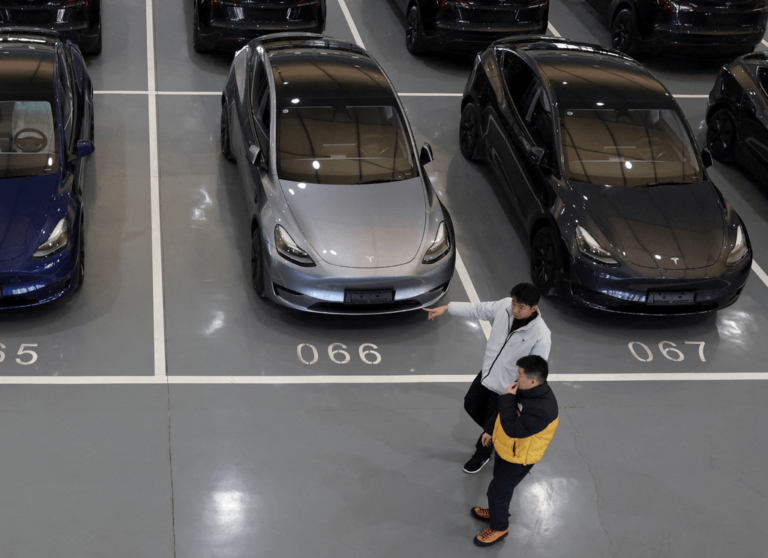
Reuters
Saudi Arabia becomes Tesla’s latest Gulf market, joining Dubai, Jordan, Qatar and Israel
Sales at pop-up stores Deployment of supercharger network EV30% target in Riyadh
Elon Musk’s Tesla is set to go on sale in Saudi Arabia this quarter, tapping into one of the world’s largest oil producers that is expanding across the Gulf, people familiar with the plans told AGBI.
The U.S. electric car maker plans to start sales through pop-up stores and set up showrooms and service centers, officials said.
The company also plans to develop a supercharger network that can also be used by other EV brands.
Tesla did not respond to a request for comment.
Tesla’s expansion into Saudi Arabia could reshape a market characterized by some of the lowest fuel prices in the world, as well as electric mobility in the kingdom, where per capita appetite for luxury cars is among the highest in the world. It will also help increase interest in
According to PwC’s 2024 Electric Mobility Outlook, EV penetration in Saudi Arabia is still low, accounting for just over 1% of total car sales in Saudi Arabia.
Only 7% of all vehicle models in the country are electric.
According to charging station search site Electromaps, charging infrastructure remains limited, with only 104 charging stations expected to exist nationwide by 2023.
But the government has set a target for 30 percent of vehicles in Riyadh, the busiest city, to be electric by 2030 as part of efforts to cut carbon emissions in the city by 50 percent.
Interest in EVs is growing, with PwC pointing out that over 40% of Saudi consumers are considering purchasing an EV in the next three years.
Beyond Tesla’s entry into Saudi Arabia, the EV market in the Gulf is heating up.
Ineos Automotive, the British carmaker backed by billionaire Sir Jim Ratcliffe, is considering launching its Fusilier electric car in the Middle East after facing difficulties with governments across Europe.
Shanghai-based Nio also has stores in the United Arab Emirates and has opened its first showroom in the Mena region at The Galleria Al Maryah Island in Abu Dhabi.
The UAE is leading the way in regional adoption, with more than 28,000 EVs registered in 2023.
The country is investing heavily in its charging network, which remains a hurdle, and aims for EVs to account for 15% of new car sales by 2030.
Saudi Arabia is also developing its own EV industry.
Lucid Group, in which the Public Investment Fund holds a 60% stake, delivered 10,241 vehicles in 2024, exceeding expectations.
Rivian, the US EV maker backed by Saudi conglomerate Abdul Latif Jameel and Amazon, reported higher-than-expected deliveries in the fourth quarter of 2024.
Ceer, a joint venture between PIF and Taiwanese manufacturer Foxconn, plans to start producing EVs in 2025 and aims to produce 500,000 EVs a year for domestic use and export by 2030. .
Tesla opened a showroom in Dubai in 2017, marking its first foray into the Gulf. It also has operations in Jordan, Qatar and Israel, according to its website.
Tesla’s entry comes amid broader challenges in the global EV market. In the first 11 months of 2024, Chinese brands accounted for two-thirds of global EV sales, increasing 40% year-on-year compared to global growth of 25%.
Tesla recorded its first annual sales decline in 10 years in 2024, with deliveries dropping by about 1%.
Still, Musk’s vision for self-driving cars and Tesla’s “full self-driving” software piqued investor interest, contributing to a more than 60% rise in the company’s stock price in late 2024.
Last week, the company launched an improved version of its best-selling car, the Model Y, in China.


